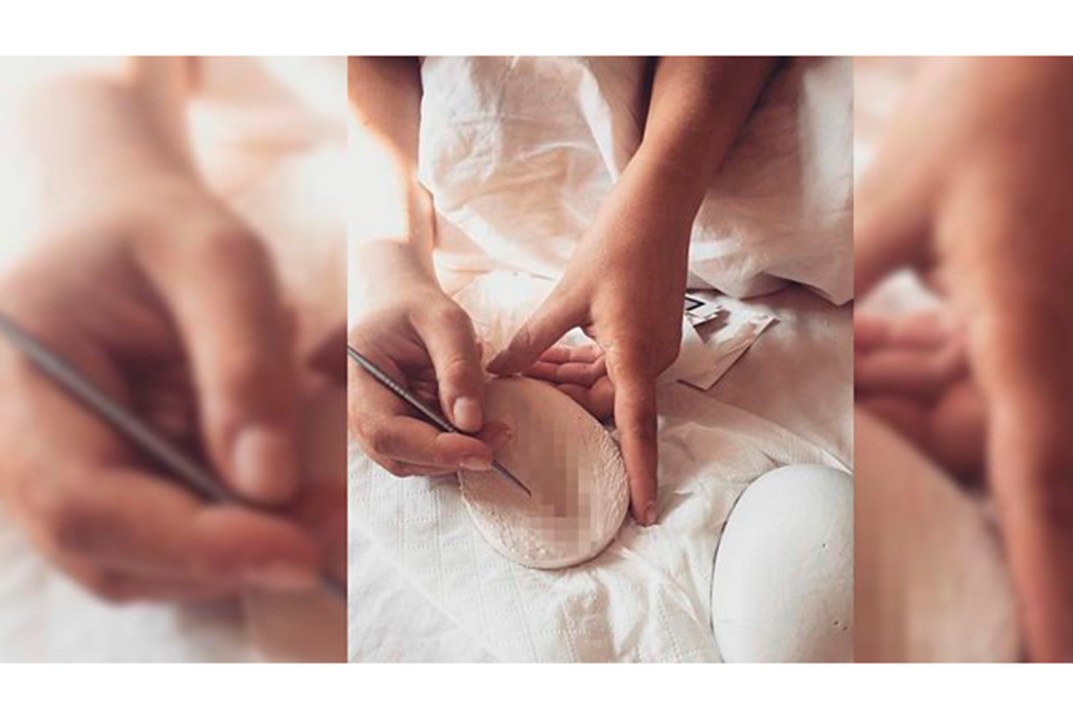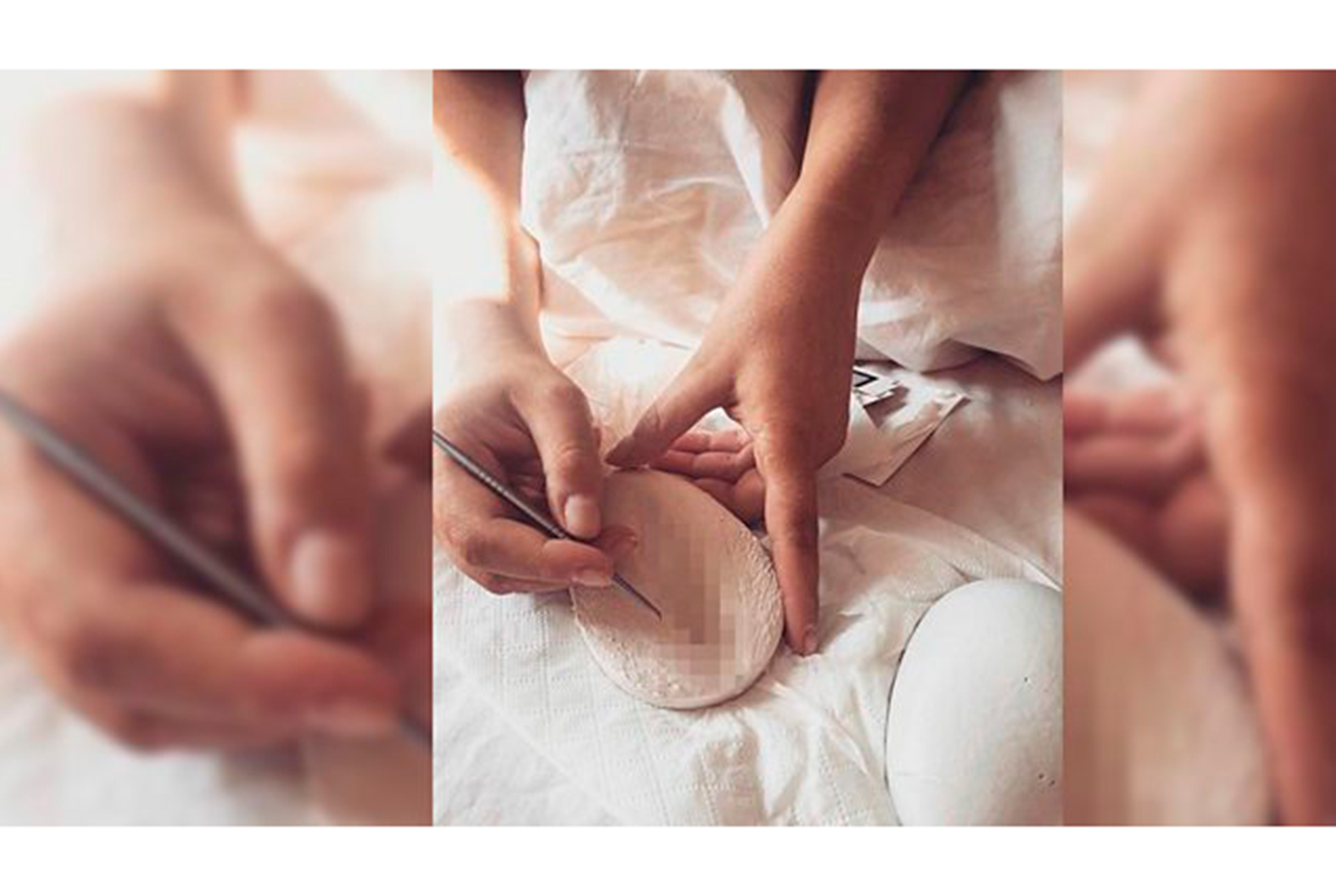I spent half an hour this week listening to a woman make a plaster cast of her vulva. Kat Harbourne, co-host of The Naked Podcast on BBC Sounds, opened a recent episode by buzzing her bikini trimmer over the microphone before squatting over a British Airways peanut dish.
Jenny Eells, her partner in crime, stood close by offering to hold up her dress. ‘I feel a bit like a voyeur, almost,’ she said, as if surprised at herself. ‘Thanks for letting me be a part of it.’ Then the mould-maker, Phoebe, put a porridgy alginate in Kat’s dish, and Jenny thought it looked ‘tasty’.
Jenny and Kat are used to seeing each other naked. Most weeks, they invite on a female guest, and encourage her to strip off with them so that they can have a chat in the nude. ‘What are you taking off?’ they’ll ask her, so that we can be a part of it too.
She buzzed her bikini trimmer over the mic before squatting over a BA peanut dish
The way we see ourselves can be very different from the way others see us. Guests tend to highlight their least favourite attribute — some flaw imperceptible to anyone else — before realising that they have overstated its significance. That shift in perception can be wonderful to witness.
But the conversation can become a bit lurid. Picture Botticelli’s Three Graces, sizing each other up, exchanging glances, as Zephyrus gently blows their clothes away. And then imagine they are singing ‘Viva la vulva!’ and clamouring to immortalise their most intimate parts in plaster of paris. This was the scene as Phoebe filled the mould, described her ambition to cast a clitoris post-climax and finally revealed the objet.
I am not one to clutch my pearls. Growing up in a house of artists with the numbers of life models stuck to the fridge teaches you to be quite comfortable with flesh. But I’m not sure I needed to know which feminine sanitary products created the best effects in the plaster. Nor how accurately a mould can capture the texture of a ‘plucked chicken’.
This is a podcast for and about women, but given the nature of some of the commentary, I did wonder who else would be listening in. Taking your clothes off on radio, it made me realise, must be so much more unnerving than doing so on stage. And so, to Kat, hats (and knickers) off.
Is there a cultural bias towards the sort of people who bare all? Russell Kane is discussing what it means to be an extrovert in a series starting on Radio 4 this week. As a comedian, he has always assumed that he is one, and that introversion would hinder his success. But as he discovers in the first episode — a pleasingly tight 13-minute interview with psychotherapist Mark Vernon — the two types, coined by Carl Jung in 1921, are never mutually exclusive.
‘I think Jung would have been horrified at people going around saying, “I am an extrovert” or “I am an introvert”,’ says Vernon. Jung showed that we need to be both to be full people. This presumably explains how some actors and comedians manage to be live wires on stage but such aloof grumps in person. The programme gives hope that even the most extroverted can discover contentment in quiet introspection which, in the era of social distancing, may be just as well.
On the topic of distancing, the young presenters of the new History in Isolation podcast have been discussing the history and future of the British pub. If, like me, you despaired of men moaning about missing ‘the beer garden’ every time the news came on during spring (I mean, priorities), you may find these chaps refreshing.
The first part of the episode consisted of interviews with publicans and pub historians about the challenges they have faced. But it was the second part, in which the three twentysomethings got together to discuss their own reactions to the changing face of drinking, that surprised me most. Having returned to the pub post-lockdown, these youngsters realised, mirabile dictu, that ‘there was nothing particularly interesting about it’. The restrictions may have dampened their enthusiasm but they were not the main reason for their mood. Drinking in parks and private gardens, where many have also taken to exercising with new vigour, is, they say, a cultural movement. This year may make introverts of us all.







Comments